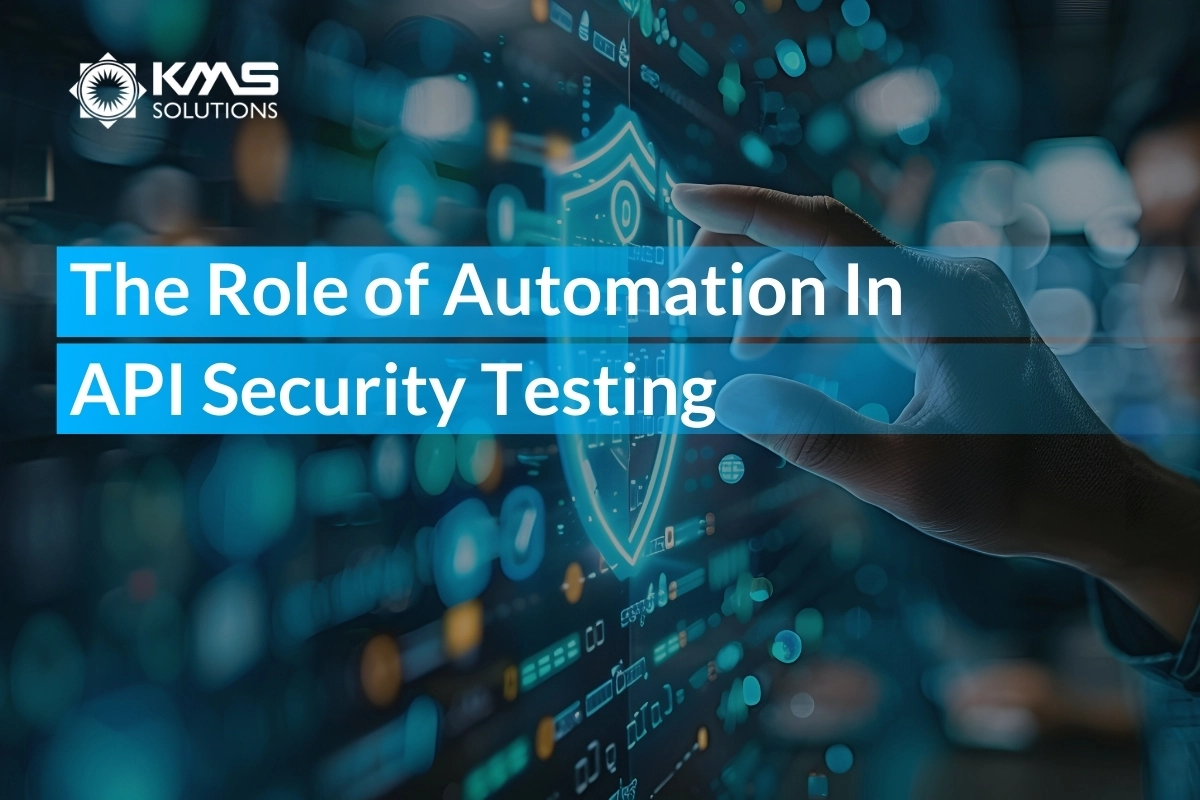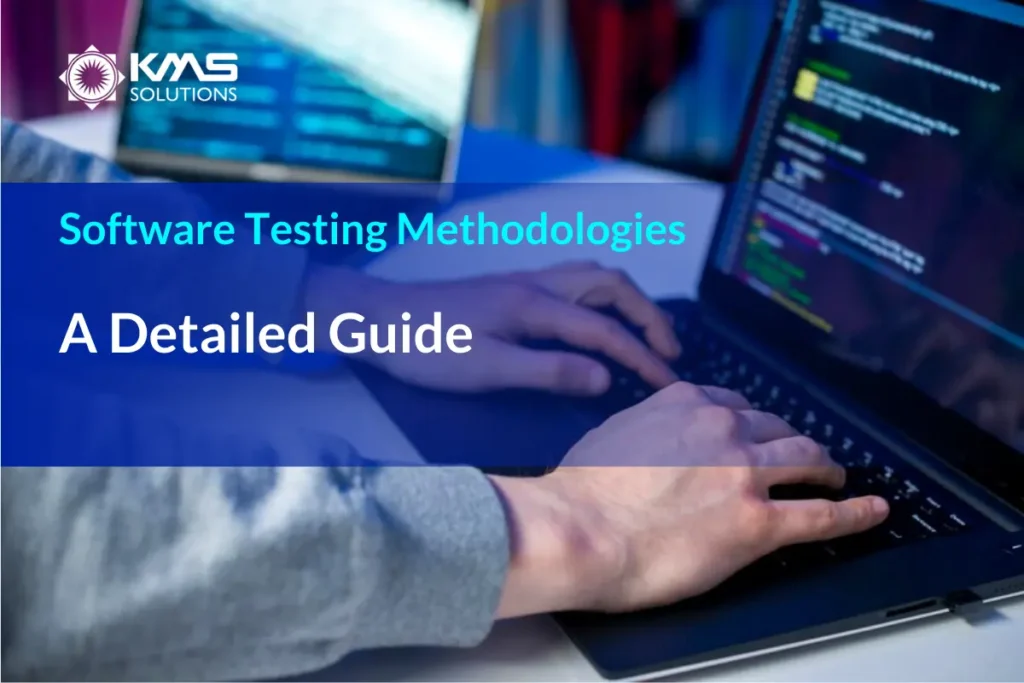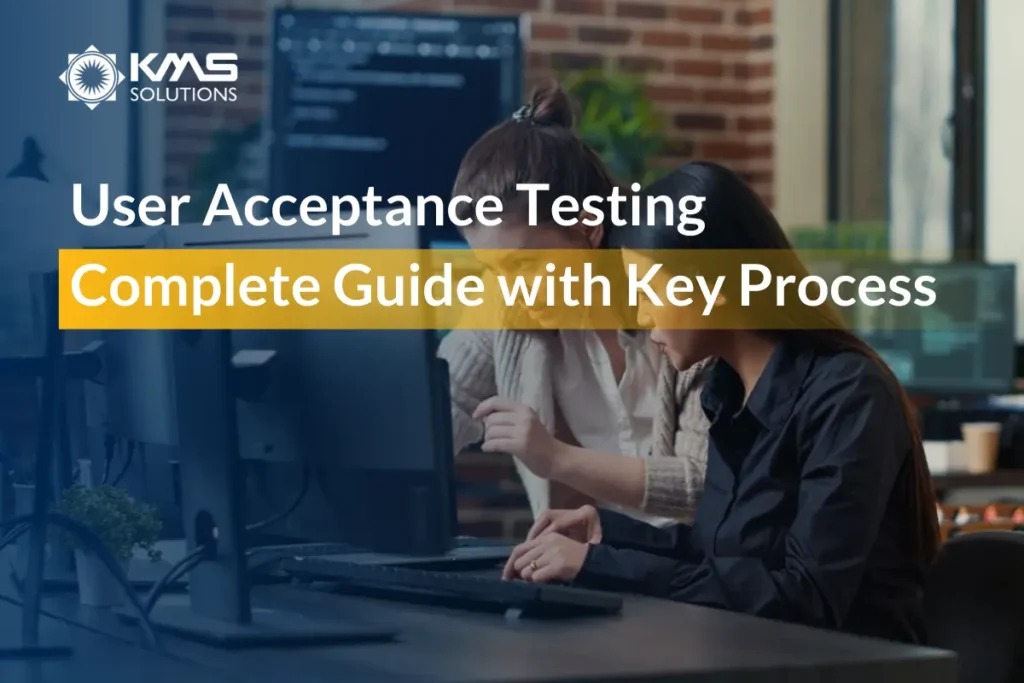API security test processes are critical for safeguarding sensitive data and ensuring the integrity of applications. As APIs serve as the backbone of many applications, ensuring the security of APIs is critical, particularly for industries like banking, where sensitive data and financial transactions are at stake.
With the increasing complexity and volume of API interactions, manual security testing has become both time-consuming and prone to human error. This is where automation steps in, playing a critical role in enhancing the effectiveness and efficiency of API security testing.
Companies like KMS Solutions are at the forefront of providing robust automated API security testing services to mitigate these risks. In this article, we will delve into the significance of API security testing, the benefits of automation in this process, and the best practices to enhance security.
1. What is API Security Testing?
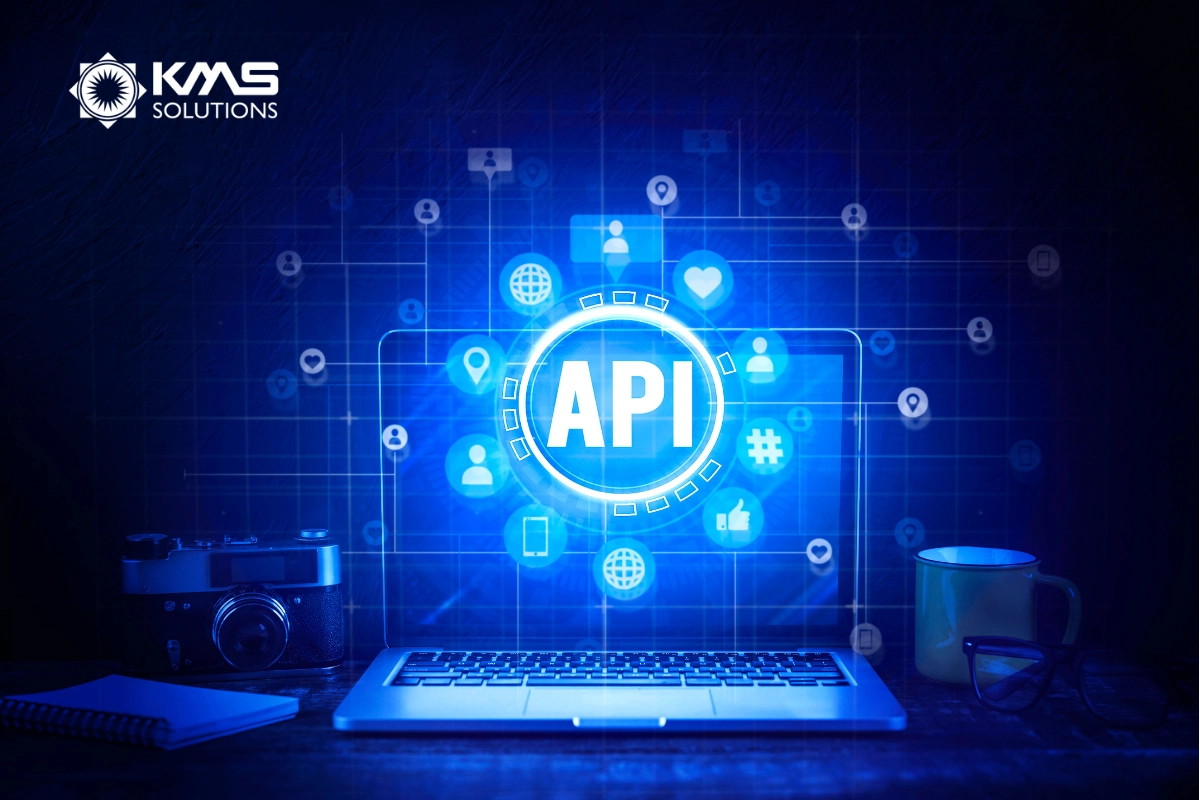
API security testing involves a comprehensive evaluation of APIs to identify potential vulnerabilities and weaknesses that malicious actors could exploit. This type of testing ensures that APIs are not only functional but also secure, safeguarding the data and services they expose. Effective API security testing helps in detecting issues such as improper authentication, data exposure, and other security flaws that could lead to unauthorized access or data breaches.
2. Types of API Security Tests
API security testing involves various methodologies designed to ensure that the application programming interfaces (APIs) of a software system are protected against vulnerabilities and potential security breaches. APIs play a crucial role in modern software architectures, and as such, their security must be tested rigorously. Below are some common types of API security testing:
2.1 Static Analysis Security Testing (SAST)
Static Analysis Security Testing, or SAST, analyzes the source code or binaries of an API without executing it. The primary purpose of SAST is to identify vulnerabilities in the code during the development phase. SAST helps detect potential coding flaws, insecure programming practices, and improper API configurations. By examining the code’s structure, SAST helps developers address security issues before deployment.
2.2 Dynamic Application Security Testing (DAST)
Dynamic Application Security Testing, or DAST, involves testing the API while it is running. Unlike SAST, DAST tests an API in real-time, interacting with the API by sending requests and analyzing responses. DAST focuses on vulnerabilities that arise during execution, such as issues with input validation, authentication flaws, and improper session management. This type of testing is essential for identifying vulnerabilities that may not be detectable during static analysis.
2.3 Software Composition Analysis (SCA)
SCA focuses on analyzing the open-source libraries and dependencies an API uses. APIs often rely on external components, and vulnerabilities in these dependencies could introduce risks to the API. SCA tools assess the security of these libraries and provide insights into known vulnerabilities and potential patches. Ensuring the integrity of these components is critical for maintaining the overall security of an API.
2.4 Authentication and Authorization Testing
Authentication ensures that only legitimate users can access the API, while authorization defines what actions those users are permitted to perform. Testing both of these mechanisms is crucial for API security. Common authentication protocols, such as OAuth or JWT, must be rigorously tested to ensure they are implemented securely. Similarly, authorization testing ensures that user roles and permissions are correctly enforced, preventing unauthorized access to sensitive data or operations.
By integrating these API security testing methodologies, software developers can better safeguard APIs from potential vulnerabilities and cyberattacks. Each testing type offers a unique approach to identifying risks, contributing to a more secure and robust API ecosystem.

3. How Automated API Testing Enhances Your Business
Automated API testing is a method of software testing where specialized software tools are used to send requests to APIs, receive responses, and validate them against pre-set criteria. This process ensures that APIs are functioning correctly and meet the defined requirements and functions. Here’s how automated API testing can help drive your business forward:
3.1 Maximize Developer Productivity
Your developers are some of your most valuable resources, and their time is best spent on innovation rather than repetitive tasks. Automated API testing frees up your developers by handling the repetitive and time-consuming aspects of testing. This means they can focus on fixing bugs, developing new features, and enhancing your products, ultimately accelerating your development cycle. By automating the testing process, your team can deliver higher-quality software at a faster pace, keeping up with evolving business and customer demands.
3.2 Reduce Human Error in Testing
APIs are inherently complex, interacting with multiple systems and requiring rigorous testing to ensure security and functionality. Manual testing, while necessary, is prone to human error, which can lead to missed vulnerabilities and potential security breaches. Automated API testing minimizes these risks by systematically executing a vast array of test scenarios, ensuring comprehensive coverage and reducing the likelihood of oversight. With automation, you gain confidence that your APIs are thoroughly tested against all possible conditions, safeguarding your business from unforeseen issues.
3.3 Accelerate Testing Processes
Manual API testing is not only complex but also time-consuming, often requiring hours of coding and execution. In contrast, automated API testing can execute the same tests in seconds, drastically reducing the time and effort needed to validate your APIs. This speed allows your team to run extensive test suites in minutes rather than weeks, saving valuable time and resources. Moreover, automated testing is both repeatable and scalable, enabling your testing efforts to keep pace with the demands of development and business growth without compromising on quality. Whether your APIs are simple or complex, automation ensures that every change is thoroughly tested, preventing unanticipated consequences from disrupting your operations.
Read more: API Load Testing – Step-by-step Guide On How To Load Test Your APIs
4. Essential Tools for Automated API Security Testing
Several tools are crucial for automated API security testing, each offering unique features that contribute to a robust testing strategy:
- PortSwigger’s Burp Suite: A powerful tool commonly used for web vulnerability scanning and API security testing. Burp Suite excels in finding potential security issues in APIs by conducting both automated and manual scans. Its wide array of features allows for thorough API security assessments, including scanning for common vulnerabilities such as injection flaws, broken authentication, and other security weaknesses.
- Katalon Studio: Known for its comprehensive testing capabilities, Katalon Studio is ideal for both functional and security testing of APIs. It provides an intuitive interface for creating automated API tests and seamlessly integrates with CI/CD environments, ensuring continuous testing. Katalon’s versatility makes it a strong choice for teams looking to test multiple aspects of API security, including response validation and performance under stress.
These tools provide an excellent foundation for ensuring the security and reliability of APIs. By utilizing these platforms, KMS Solutions delivers high-quality, automated API security testing services, ensuring that your APIs meet the highest standards of security and performance.

5. Common Vulnerabilities in APIs
5.1 Injection Attacks
Injection attacks occur when a hacker sends malicious input to an API, exploiting vulnerabilities in input processing systems. These attacks can lead to unauthorized access, data manipulation, or even complete server takeover. For example, SQL injection allows attackers to execute arbitrary SQL commands on a database, potentially accessing sensitive information or compromising user accounts. KMS Solutions emphasizes comprehensive API security testing to identify and fix these vulnerabilities before they can be exploited, safeguarding the integrity of financial data.
5.2 Broken Authentication
Broken authentication vulnerabilities arise when APIs are not properly secured, allowing attackers to bypass authentication protocols. This can result from weak password policies, inadequate session management, or the absence of multi-factor authentication. Attackers exploiting broken authentication can impersonate legitimate users, access sensitive information, and perform unauthorized actions. KMS Solutions integrates best practices such as multi-factor authentication and secure session management into their API security testing services, ensuring resilience against authentication-related attacks.
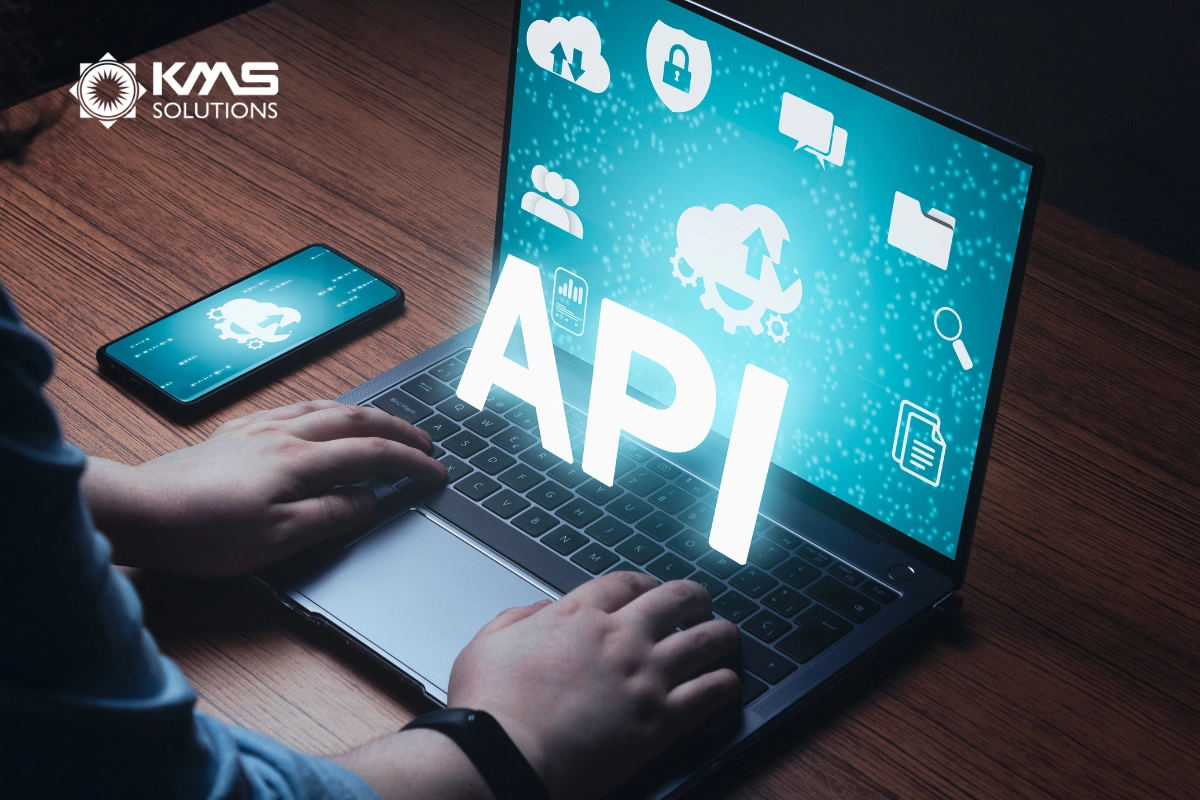
6. How to Automate API Testing: A Step-by-Step Guide
Successfully automating API testing requires careful planning and a structured approach. Here’s a breakdown of the essential steps to ensure your API testing automation project is efficient and effective:
Step 1. Develop a Comprehensive Plan
Begin by crafting a detailed plan that outlines the scope, objectives, and resources required for the API testing automation project. This plan acts as a roadmap, guiding your team through each phase of the project. It helps you anticipate challenges, allocate resources efficiently, and keep the project within budget. A well-structured plan sets the foundation for a successful automation effort.
Step 2. Define Testing Requirements
Identifying clear and precise requirements is critical to maintaining focus and direction throughout the project. These requirements typically include understanding the API’s target audience and functionality, determining how the API interacts with other systems, and establishing the goals of the testing process. Additionally, defining what constitutes a successful or failed test will help align the team’s efforts toward the project’s objectives.
Step 3. Design Test Cases
Test cases are the backbone of your API testing strategy. Whether you have existing manual test cases or need to develop new ones, it’s essential to ensure they cover a wide range of scenarios. Two common approaches are behavior-driven testing, which focuses on user behavior, and data-driven testing, which emphasizes testing with various data inputs. The robustness of your test cases directly impacts the accuracy and reliability of your automation efforts.
Step 4. Choose the Right Tools and Framework
Selecting the appropriate testing framework and tools is crucial for standardizing your QA processes and ensuring consistent test execution. Depending on your team’s expertise and project needs, you can choose between ready-made frameworks or custom-built ones. Tools range from open-source options like Postman and SoapUI to more comprehensive paid solutions, and your choice should align with your project’s complexity and budget.
Step 5. Set Up the Testing Environment
A well-configured testing environment is essential for accurate and reliable test results. This involves setting up servers, databases, and other infrastructure components that the API interacts with. Collaborating with DevOps or experienced engineers ensures the environment mimics real-world conditions, providing a solid foundation for testing the API’s performance and stability.
Step 6. Execute Tests and Analyze Results
With the environment set and test cases ready, you can proceed to execute the tests. Running tests in parallel can enhance efficiency and reduce dependencies. After execution, it’s crucial to analyze the results carefully to assess the API’s quality and identify any issues. Utilizing automation tools can help streamline this analysis, providing insights into areas that need improvement.

7. Why Choose KMS Solutions As Your API Testing Partner?
7.1 Business-Centric Approach
At KMS Solutions, our focus is on maximizing your return on investment (ROI) and boosting overall profitability. Our experienced Quality Assurance (QA) teams understand the unique business requirements of each client, ensuring that the API testing processes are aligned with your strategic goals.
7.2 Scalable API Testing Team
KMS Solutions provides scalability with a team of over 1300 IT professionals whose expertise spans various industries, making us well-equipped to address the specific challenges faced by BFSI (Banking, Financial Services, Fintech, Insurance, etc.). This scalability allows us to handle projects of varying sizes and complexities, ensuring that your testing needs are met efficiently and effectively.
7.3 Commitment to Excellence
We leverage best practices, the latest technologies, and our excellence delivery framework to ensure the highest quality and performance standards in our API testing services. Our commitment to excellence is reflected in our rigorous testing methodologies, which include functional, performance, security, integration, reliability, and interoperability testing.
7.4 Expertise and Experience
KMS Solutions has a proven track record of delivering high-quality API testing services to leading organizations across the globe. Our clients, such as GIC, MB Bank, Maxis, and TPBank, have benefited from our expertise and dedication. For instance, our collaboration with MB Bank enabled them to scale their API testing efforts using Katalon, leading to significant improvements in their automation testing processes.
7.5 Advanced Tools and Technologies
We utilize a range of advanced tools and technologies for API testing, including both proprietary and open-source solutions. Our toolset includes platforms like Katalon Studio, which offers comprehensive capabilities for automated testing.
By leveraging these tools, we ensure thorough and efficient testing of your APIs, covering various aspects such as performance, security, and functionality.
7.6 Tailored Solutions
Every business has unique requirements, and KMS Solutions recognizes the importance of providing tailored testing solutions. Our team works closely with you to understand your needs and develop customized testing strategies aligning with your objectives.
Conclusion
API security testing is essential for protecting sensitive data and ensuring the integrity of applications. Automation plays a crucial role in enhancing the efficiency and effectiveness of API security testing. By incorporating automation into your API security test process, you can ensure that your applications are secure and resilient against cyber threats.
KMS Solutions is leading the way in providing robust automated API security testing services. These help businesses protect their critical data and maintain the trust of their users. Contact our testing team now for the best-automated API testing solutions!



